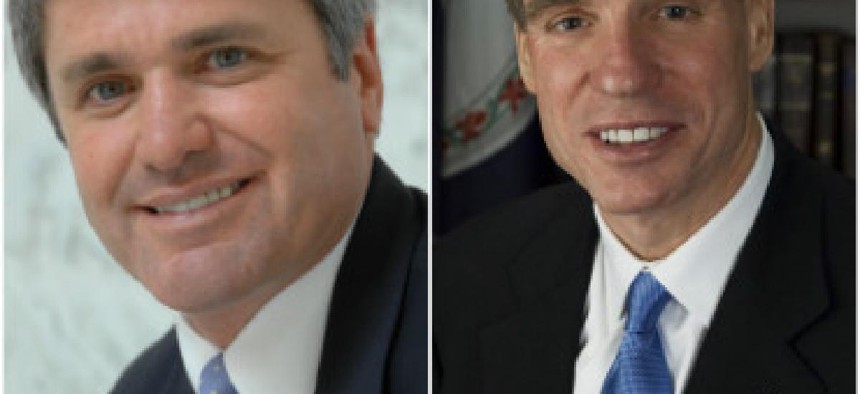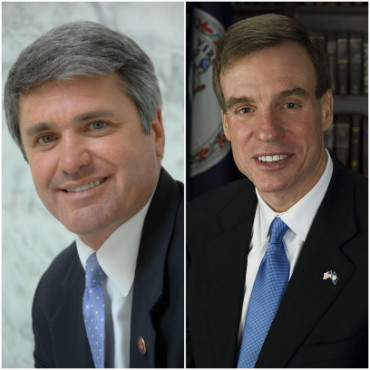Details emerge about planned digital security commission

A new bill would create a commission to probe and issue recommendations on how to walk the line between privacy and security when it comes to commercially available encryption and other technologies.

Rep. Michael McCaul (left) and Sen. Mark Warner (right) are calling for a digital security commission to examine encryption and other technology issues.
Details are emerging about a plan to create a congressionally mandated commission that would carve a path between the competing interests of law enforcement and technology companies in the digital security space.
A draft version of a bill from Rep. Michael McCaul (R-Texas), chairman of the House Homeland Security Committee, and Sen. Mark Warner (D-Va.), a member of the Senate's Select Committee on Intelligence, calls for a 16-member panel consisting of experts in technology, cryptography, law enforcement, intelligence, privacy, global commerce and national security.
According to draft text obtained by FCW, the bill cites challenges created by advances in technology. The commission would bring together analysts, policymakers and law enforcement agents to find ways to mitigate "the dangers posed by the use of digital security and communications technology by terrorists and criminals [and] determine the implications for national security, public safety, data security, privacy, innovation and American competitiveness in the global marketplace."
Republican and Democratic leaders in Congress would be allowed to appoint eight individuals each to the commission. Republicans would select the chairperson, and Democrats would choose a vice chair. The commission would be in place for about a year and would be tasked with holding hearings and collecting information with the goal of producing a report that quantifies the value of encryption technology to the U.S. economy and the costs of introducing weaknesses or gaps in commercial encryption to serve law enforcement.
The commission would be modeled on the panel created by Congress to investigate the 2001 terrorist attacks. It would have the power to subpoena witnesses and the authority to obtain information from government agencies.
McCaul has previously said the encrypted "dark space" is the greatest challenge to law enforcement when it comes to stopping terrorists who are planning attacks inside the U.S.
"The whole point of the bill and the commission is to find a solution to a Paris-style attack where the attackers are using end-to-end encryption on apps to conduct a major terrorist operation," McCaul said at a recent Bipartisan Policy Center event. "We don't want to see that happen in the United States."
NEXT STORY: Why encryption is inevitable


